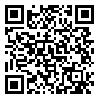Volume 22, Issue 84 (4-2022)
refahj 2022, 22(84): 39-71 |
Back to browse issues page
Download citation:
BibTeX | RIS | EndNote | Medlars | ProCite | Reference Manager | RefWorks
Send citation to:



BibTeX | RIS | EndNote | Medlars | ProCite | Reference Manager | RefWorks
Send citation to:
Rahman A. (2022). Peer Pressure in Smoking and its Impact on Social Welfare; A Study Using Agent-based Modeling and Simulation. refahj. 22(84), : 2
URL: http://refahj.uswr.ac.ir/article-1-3712-en.html
URL: http://refahj.uswr.ac.ir/article-1-3712-en.html
Abstract: (3832 Views)
Many people die each year due to smoking. Social pressures, such as peer pressure, which are manifested in one's interactions with his/her peers, are from very effective factors in people's tendency to smoke. In this research, it was attempted to study and analyze peer pressure in smoking and its impact on some of the welfare indicators including mortality number due to starvation, wealth average of agents and Gini coefficient using agent-based modeling and simulation. The research used agent-based modeling and simulation method and also used library studies. Using the NetLogo software and the basic models and considering other requirements, a model was developed and some experiments were performed. Findings of the experiments showed that in both situations; absence of peer pressure in smoking and presence of peer pressure in smoking, by increasing number of smoker agents in society, mortality number due to starvation and average of Gini coefficient increase and wealth average of agents decreases. Findings of the experiments in the situation of absence of peer pressure in smoking indicate a richer society in comparison with the situation of presence of peer pressure in smoking. Consequently, increasing the number of smoker agents in society can lead to decrease social welfare. Also, presence of peer pressure in smoking can lead to decrease wealth average and increase mortality number due to starvation of agents. Therefore, in order to properly and principally deal with peer pressure for smoking and preventing the consequence resulting from it, it is necessary to study more about this problem and to employ appropriate and effective encounter strategies for it.
Article number: 2
Type of Study: orginal |
Received: 2020/08/19 | Accepted: 2021/11/10 | Published: 2022/05/13
Received: 2020/08/19 | Accepted: 2021/11/10 | Published: 2022/05/13
Send email to the article author
| Rights and permissions | |
 |
This work is licensed under a Creative Commons Attribution-NonCommercial 4.0 International License. |







